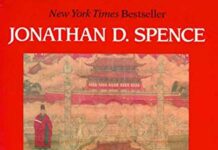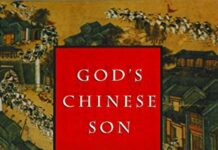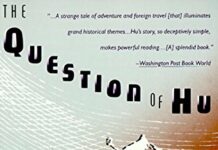
Ebook Info
- Published: 1999
- Number of pages: 302 pages
- Format: PDF
- File Size: 1.73 MB
- Authors: Jonathan D. Spence
Description
“Like everything else written by Jonathan Spence, The Chan’s Great Continent is an absolute must-read for anyone interested in China. Spence is one of the greatest Sinologists of our time, and his work is both authoritative and highly readable.” ―Los Angeles Times Book Review China has transfixed the West since the earliest contacts between these civilizations. With his characteristic elegance and insight, Jonathan Spence explores how the West has understood China over seven centuries. Ranging from Marco Polo’s own depiction of China and the mighty Khan, Kublai, in the 1270s to the China sightings of three twentieth-century writers of acknowledged genius-Kafka, Borges, and Calvino-Spence conveys Western thought on China through a remarkable array of expression. Peopling Spence’s account are Iberian adventurers, Enlightenment thinkers, spinners of the dreamy cult of Chinoiserie, and American observers such as Bret Harte, Mark Twain, Ezra Pound, and Eugene O’Neill. Taken together, these China sightings tell us as much about the self-image of the West as about China. “Wonderful. . . . Spence brilliantly demonstrates [how] generation after generation of Westerners [have] asked themselves, ‘What is it . . . that held this astonishing, diverse, and immensely populous land together?’ “–New York Times Book Review
User’s Reviews
Editorial Reviews: Review Like everything else written by Jonathan Spence, The Chan’s Great Continent is an absolute must-read for anyone interested in China. Spence is one of the greatest Sinologists of our time, and his work is both authoritative and highly readable. — Los Angeles Times Book ReviewWonderful. . . . Spence brilliantly demonstrates [how] generation after generation of Westerners [have] asked themselves, ‘What is it . . . that held this astonishing, diverse, and immensely populous land together?’ — New York Times Book Review About the Author Jonathan D. Spence (1936―2021) was Sterling Professor of History at Yale University, where he taught for more than forty years. He was awarded MacArthur and Guggenheim Fellowships, and the Los Angeles Times Book Award. The Search for Modern China won the Lionel Gelber Award and the Kiriyama Book Prize.
Reviews from Amazon users which were colected at the time this book was published on the website:
⭐I very much liked this book, since I enjoy reading about other cultures. The book provided a very good description of the culture and practices. I do recommend it for anyone who likes to learn about other countries and people.
⭐I read this book in anticipation of our recent trip to China but didn’t manage to learn much to help me appreciate what we’d see. This is a highly scholarly book with esoteric references for academic insiders. In fairness to the author, a China expert who evidently is highly regarded, I probably just chose the wrong book to help me prepare for a touristy visit to the Great Wall, the Terra Cotta Warriors and the pandas.
⭐Imaginative. Careative!
⭐I started reading Jonathan Spence and now I have to read everything he wrote. He had so much knowledge to share
⭐As described. Timely delivery
⭐Great stuff…
⭐Jonathan Spence’s work on China is amazingly erudite and interesting. I have never read a bad book by him. This one is no exception. Though it is about China in one sense, it really concerns the reflection of China in the eyes of the West. From Marco Polo to Kafka, Borges and Calvino, Westerners have looked at China with fascination, but what they wrote about it mirrors either what they wanted to see or what their own culture predisposed them to see. Spence does not really say so, but it seems to me that this is natural for any people—if we examined Chinese writings on the West or Islamic writings on Southeast Asia for example—we would find the same trend. Anthropologists spend a lifetime trying to get beyond their own cultural concerns and prejudices but often fail. So, on our smoothly written and well-researched journey from the 13th century at Kublai Khan’s court to the discourse on oriental despotism by Wittfogel in the 1950s, we run across numerous instances of travelers, writers, missionaries, soldiers, and merchants (not forgetting such philosophers as Liebniz and Montesquieu) who gazed at China–up close, from afar, or at the Chinese in their midst–and came to conclusions that, in the end, reflected themselves more than China itself. Only a few spoke Chinese or had access to Chinese people. Many tried to describe China for their readers, but it more than once reminded me of the Indian story about six blind men describing an elephant by touch. Others tried to draw moral lessons, or add their views to overarching theories of politics or human existence. All in all, it’s a fascinating compilation of the history of Western knowledge about China, such a large chunk of the human race. It’s also a monument to, not the Western, but the human predilection for summarizing, trying to collect disparate facts and amalgamate all of them into a single viewpoint. It seems to me that when you try to do this, you wind up with a mirror in which the main sight is your own face. China, for example, remains far more than the sum of what Westerners wrote about it. This is really a good book.
⭐~This is an odd book, one of those curious fish that escape the nets of genre. Is is history? Sort of. Literary Criticism? Perhaps. Cultural anthropology? In a way.It’s well worth reading, but it’s not an entirely successful book. In a way Spence’s great virtue is his downfall here. He’s too generous and open a reader, too ready to take the Western traders, soldiers, missionaries, and men of letters on their own terms. He’ll follow them anywhere — and the result is a rather unfocused phantasmagoria, a bewildering palimpsest of Chinas. One of Spence’s main points is that the Chinas in Western minds have no necessary connection to each other, or to the “real” China — and it’s a point well-taken — but the result is a diffuse and slightly out-of-focus book. It’s history in the strict sense, when it intriguingly evaluates Marco Polo’s credibility. It’s history in the 19th Century vein (that’s praise, in my book) when it presents the tragedy of an isolated missionary’s wife betrayed to an unmerited violent death in the Boxer rebellion. It’s cultural anthropology when it evaluates Mark Twain’s simultaneous racism and anti-racism. It’s pure literary criticism as it meditates on Kafka, Malraux, and Borges. It’s very good in each mode. But the different modes don’t really inform and enrich each other. The book remains a collection of disparate pieces, each very good of its own kind, but it never reaches the higher unity that we look for (maybe unfairly, maybe unwisely) in a cross-disciplinary book.Still it is a great read, and its sheer variety (and the display of Spence’s remarkable virtuosity) is entrancing. It may be disorienting, but it’s never boring. Anyone whose fate makes them one of that other species of curious fish — those who swim in between the East and West, being wholly of neither the one nor the other — will want to read it.
Keywords
Free Download The Chan’s Great Continent: China in Western Minds in PDF format
The Chan’s Great Continent: China in Western Minds PDF Free Download
Download The Chan’s Great Continent: China in Western Minds 1999 PDF Free
The Chan’s Great Continent: China in Western Minds 1999 PDF Free Download
Download The Chan’s Great Continent: China in Western Minds PDF
Free Download Ebook The Chan’s Great Continent: China in Western Minds




